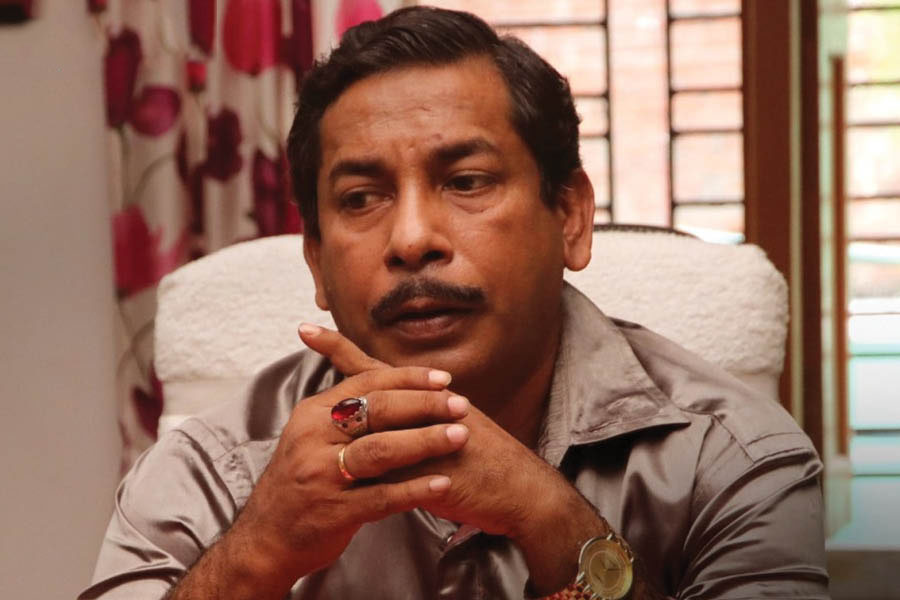In his fifth directorial venture, Bratya Basu delivers a gritty gangster film built around dreaded criminal Hubba Shyamal Das, who was infamous as the ‘Dawood Ibrahim of Hooghly’ in Kolkata of the early 2000s. The film is loosely based on a chapter from Supratim Sarkar’s book Goyendapeeth Lalbazar.
Shymal becomes Bimal in Basu’s film and Bangladeshi actor Mosharraf Karim undergoes a remarkable transformation into the title character of a crime lord. Shyamal’s associates Benarasi Bapi and Ritesh Mahto are Bokaro Bapi and Umesh Mahto in the film.
The film begins in 2005, with CID officer Dibakar Sen (Indraneil Sengupta) attempting to catch Hubba. A cat-and-mouse chase begins, portraying the challenges faced by the police in pinning down this uneducated but street-smart criminal. Hubba keeps playing mind games with the police and manages to give them the slip every time. When he is finally captured, his layered personality is further revealed through flashbacks, providing a nuanced understanding of his journey from an ordinary guy-next-door to a notorious criminal.
Basu, who has written the screenplay, recreates Hubba’s gangster empire with all its intricacies and complexities, showcasing the nexus between crime and politics. Hubba’s early life, family, first love and entry into the criminal world is also woven into the story that gives a nod to Bollywood gangster films like Sarkar and Vaastav.
While Hubba boasts of a line-up of strong performances, it is Mosharraf Karim who carries the film on his shoulders. He effortlessly switches between the ruthlessness of a criminal and the childlike charm of a funny man. Karim captures Bimal’s fascination with Bollywood movies too, which is evident in his clapworthy rendition of the iconic ‘Don ko pakadna na mumkin hai’ dialogue from the Amitabh Bachchan-starrer. His interactions with Indraneil Sengupta’s cop character light up the screen whenever they are together.
Loknath Dey as Bapi and Anujoy Chattopadhyay as Umesh also leave a mark. Theatre actor Gambhira Bhattacharya wins hearts as a young Bimal transitioning into a life of crime. The ferocity in his eyes in the scene where he murders a man for smiling at his girlfriend is spine-chilling.
Cinematographer Soumik Halder captures the violence permeating the film, and the judicious use of music, composed by Prabuddha Banerjee — particularly the retro vibe in the title track sung by Silajit Majumdar — enhances the overall cinematic experience.










